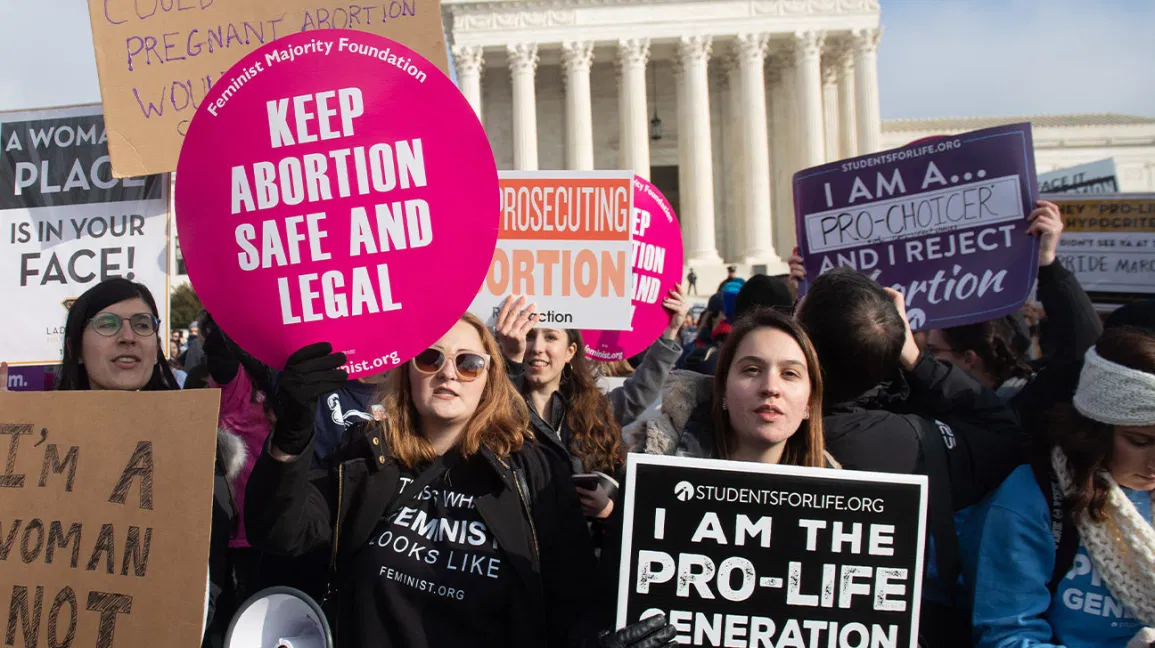World Health Organization (WHO) Guidelines on Abortion

Copyright infringement is not intended
Context: World Health Organization (WHO) presented a new guideline on abortion care.
Details:
- The World Health Organization (WHO) presented new guidelines on abortion care. WHO claimed that it would prevent more than 25 million unsafe abortions annually.
- WHO has released more than 50 recommendations that include clinical practice, health care delivery and law and policy interventions to support quality abortion care.
- WHO recommended many simple interventions at the primary care level that improve the quality of abortion care provided to women and girls.
Present Status:
- Globally, between 13,865 and 38,940 lives are lost yearly due to the failure to provide safe abortion.
- Developing countries bear the burden of 97% of unsafe abortions, according to the WHO’s website.
- The proportion of abortions that are unsafe is also significantly higher in countries with highly restrictive abortion laws than in those with less restrictive laws.
- Over 53% of all unsafe abortions occur in Asia, the majority of those in south and central Asia.
- Abortion rates were highest in low-income countries with the most legal restrictions to abortion care.
Abortion law in India:
- Abortion in India has been legal under various circumstances for the last 50 years with the introduction of Medical Termination of Pregnancy (MTP) Act in 1971.
- The Medical Termination of Pregnancy Act, 1971 allows for aborting the pregnancy by medical doctors (with specified specialization) on certain grounds.
- A pregnancy may be terminated up to 12 weeks based on the opinion of one doctor, and up to 20 weeks based on the opinion of two doctors.
- In 2021, MTP Amendment Act 2021 was passed with certain amendments in the MTP Act including all women being allowed to seek safe abortion services on grounds of contraceptive failure, increase in gestation limit to 24 weeks for special categories of women, and opinion of one doctor required up to 20 weeks of gestation.
- Abortion can now be performed until 24 weeks pregnancy as the MTP Amendment Act 2021 has come in force by notification from September 2021.
Way Forward:
- Ensuring access to medical abortion pills, would mean more women can obtain safe abortion services and making sure that accurate information on care is available to all those who need it.
- Use of telemedicine, which helped support access to abortion and family planning services during the COVID-19 pandemic.
- Removing medically unnecessary political barriers to safe abortion, such as criminalization, mandatory waiting periods before receiving a requested abortion, third-party authorization for abortion, and restrictions on which health workers can provide abortion services.
- Evidence shows that restricting access to abortions does not reduce the number of abortions that take place. In fact, restrictions are more likely to push women and girls into unsafe practices.
- In countries where abortion is most restricted, only one in four abortions are safe, compared to almost nine out of 10 in countries where the procedure is mostly legal.
- Formulate, Implement and strengthen national policies and programmes related to contraception, family planning and abortion services, helping them to provide the highest standard of care for women and girls.



1.png)
